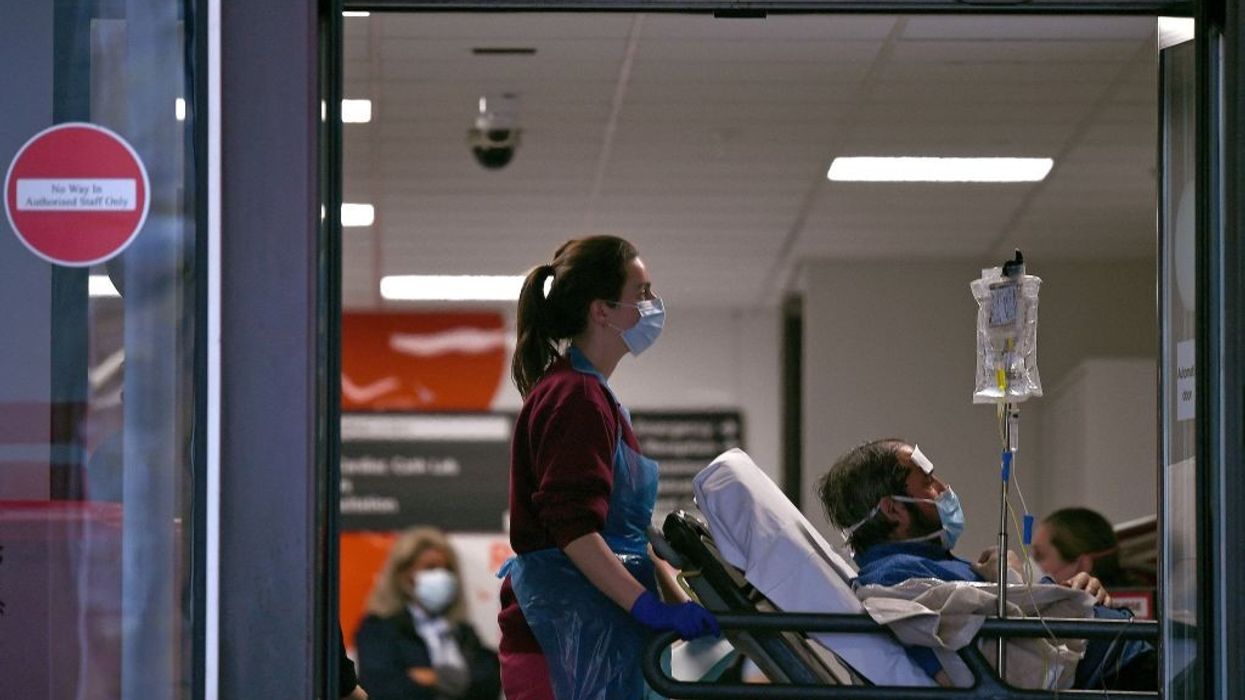COGNITIVE impairment resulting from severe Covid-19 is similar to that sustained between 50 and 70 years of age, a new study has found.
According to a team of scientists from the University of Cambridge and Imperial College London, this cognitive impairment is equivalent to ageing 20 years or losing 10 IQ points.
The findings suggest the effects are still detectable more than six months after the acute illness and that any recovery is at best gradual.
There is growing evidence that Covid-19 can cause lasting cognitive and mental health problems, with recovered patients reporting symptoms including fatigue and ‘brain fog’, according to the study published in the journal eClinicalMedicine.
In the UK, a study found that around one in seven individuals surveyed reported having symptoms that included cognitive difficulties 12 weeks after a positive Covid-19 test.
While even mild cases can lead to persistent cognitive symptoms, between a third and three-quarters of hospitalised patients report still suffering cognitive symptoms three to six months later.
To explore this link in greater detail, researchers analysed data from 46 individuals who received in-hospital care.
Covid-19 survivors were less accurate and with slower response times than the matched control population – and these deficits were still detectable when the patients were followed up six months later. The effects were strongest for those who required mechanical ventilation. By comparing the patients to 66,008 members of the general public, the researchers estimate that the magnitude of cognitive loss is similar on average to that sustained with 20 years of ageing, between 50 and 70 years of age, and that this is equivalent to losing 10 IQ points.
Survivors scored particularly poorly on tasks such as verbal analogical reasoning, a finding that supports the commonly-reported problem of difficulty finding words. They also showed slower processing speeds, which aligns with previous observations post Covid-19 of decreased brain glucose consumption within the frontoparietal network of the brain, responsible for attention, complex problem-solving and working memory, among other functions.
Professor David Menon from the division of anaesthesia at the University of Cambridge, the study’s senior author, said: “Cognitive impairment is common to a wide range of neurological disorders, including dementia, and even routine ageing, but the patterns we saw – the cognitive 'fingerprint' of Covid-19 – was distinct from all of these.”
While it is now well established that people who have recovered from severe Covid-19 illness can have a broad spectrum of symptoms of poor mental health – depression, anxiety, post-traumatic stress, low motivation, fatigue, low mood, and disturbed sleep – the team found that acute illness severity was better at predicting the cognitive deficits.
The patients’ scores and reaction times began to improve over time, but the researchers say that any recovery in cognitive faculties was at best gradual and likely to be influenced by several factors including illness severity and its neurological or psychological impacts.
Professor Menon added: “We followed some patients up as late as 10 months after their acute infection, so we're able to see a very slow improvement. While this was not statistically significant, it is at least heading in the right direction, but it is very possible that some of these individuals will never fully recover.”
There are several factors that could cause the cognitive deficits, say the researchers. Direct viral infection is possible, but unlikely to be a major cause; instead, it is more likely that a combination of factors contributes, including inadequate oxygen or blood supply to the brain, blockage of large or small blood vessels due to clotting, and microscopic bleeds.
However, emerging evidence suggests that the most important mechanism may be damage caused by the body’s own inflammatory response and immune system.
While this study looked at hospitalised cases, the team says that even those patients not sick enough to be admitted may also have tell-tale signs of mild impairment.
Cognitive impairment from severe Covid equal to 'losing 10 IQ points’




